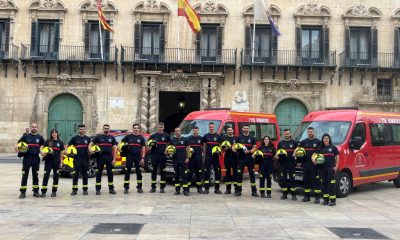Costa Blanca
Kirsty Maxwell Benidorm balcony death to be probed in new series

A new series expects the five men who last saw Kirsty Maxwell alive to provide answers in a podcast that investigates her mysterious death in Spain.
After a night out on a hen do in 2017, Kirsty, a newlywed, plummeted to her death from a balcony at a hotel in Benidorm.
Before her death, Kirsty, 27, of Livingston, inadvertently entered a 10th-floor flat that was occupied by five British men: Joseph Graham, Ricky Gammon, Anthony Holehouse, Callum Northridge and Daniel Bailey.
In July 2020, they were cleared of being homicide suspects after judges determined that there was no “strong evidence” of criminality and no indication that she had not fallen to her death.
Nevertheless, Kirsty’s mother and father, who are devastated, are adamant that she did not leap of her own volition. The case and an appeal for information are the focus of the six-part podcast, “What happened to Kirsty Maxwell.”
True Crime podcaster Naomi Channell, who narrates and produces the series, says, “I do not believe it was a tragic accident.” All the evidence suggests that she was fleeing from something.
“There are still numerous unanswered questions.”
“It is my sincere hope that this will exert pressure on the authorities and on those who were present in the flat but have never been adequately investigated.”
Naomi met Kirsty’s family at a UK Crimecon convention in 2023, where she was present with Sue Horan, the wife of Stuart Lubbock, who passed away under suspicious circumstances at the residence of television personality Michael Barrymore in 2001.
In her podcast, she recounts how upon Kirsty’s arrival at the apartments with her friends, “a shirtless man” approached them at the elevators and enquired, “Who wants to get f*** tonight?”
Kirsty returned to the apartments early in the morning after a night out, during which she consumed alcohol but did not have any narcotics in her system.
It is unclear why she awoke, proceeded to the 10th floor, and knocked on the door of room 10E. The room was shared by five men, including the shirtless man, who were all from the Nottingham area.
One of them informed the authorities. Before jumping over the Juliette balcony to her demise, Kirsty attempted to climb through a small window in the bathroom and then ran through the apartment window.
Naomi stated, “Kirsty died instantly after falling at 7.51 a.m.” One of the men reported to the police that he had observed her fall. This individual was the sleeveless man, and his name is Joseph Graham.
Adam, Kirsty’s spouse, received a call from the Spanish police informing him that she had passed away. He was compelled to inform her mother, Denise, of the tragic news. The couple had married only eight months prior.
Brian Curry, her father, expressed his disbelief, stating, “Even to this day, it is extremely difficult to accept.”
The podcast delves into the process by which Kirsty’s family travelled to Benidorm to initiate their own investigation three months after her death, as they encountered a “wall of silence” from the police.
Naomi, a podcaster from Essex, stated, “No parent should ever be required to investigate the death of their own child.”
“Brian requested 12 hours of footage that encompassed the period prior to and following Kirsty’s death; however, the police provided him with only seven minutes of edited footage.
Kirsty’s fall is not depicted in a traumatic three-second footage captured by a camera at the poolside, which captures her impact with the ground. Brian is of the opinion that the footage was edited by an individual.
“According to investigators, the remaining CCTV footage has disappeared.” The police were compelled to acknowledge that they had disposed of the garments the day following Kirsty’s death. Her attire would have served as indispensable evidence.
“They claimed that the reason was that the clothing was stained with blood.” They acknowledged that the only method of examination was visual.
David Swindle, the retired Strathclyde detective who established Victims Abroad, was astounded by the deficiencies of the investigation.
He stated that the Spanish Police failed to conduct thorough investigations into the evidence, including independent witnesses, and did not advance forensics or CCTV footage.
“These men were not separated and were not interviewed properly.” DNA issues were encountered, samples were not collected, and Kirsty’s clothing was incinerated.
“Throughout my tenure as an investigator, I was unable to comprehend it.” “If we had all of that, we would be better equipped to understand what transpired with Kirsty.”
The podcast, which will be available on Spotify, Apple Podcasts, and Amazon on April 29, commemorates the eight-year anniversary of Kirsty’s passing.
Discover more from Costa Blanca Daily
Subscribe to get the latest posts sent to your email.
Costa Blanca
Alicante electrician arrested for faking another blackout to defraud his neighbours

A 33-year-old electrician has been apprehended in Alicante on suspicion of attempting to defraud his neighbours by feigning a new power interruption. He falsely claimed he was addressing a recent power disruption and demanded €50 from each of his neighbours.
The incident occurred in the La Florida neighbourhood around 7:30 p.m. on April 29th, according to sources involved in the case. This instance occurred just 24 hours after the large-scale outage that impacted Spain and Portugal. The man, who had a criminal record, allegedly caused the neighbours’ power to go out by tampering with the building’s electrical panels that afternoon. He then restored the power and demanded money from his neighbours, alleging that the fuse had blown and that he had replaced it to restore the power.
Some of the defendant’s neighbours did pay the €50 he was requesting; however, one neighbour became suspicious and contacted the utility company, which warned him of a potential scam. In addition, a neighbour went down to the electrical panel and observed the neighbour tampering with the meter. The woman and her son confronted the electrician. The electrician broke a glass door in the entrance hall with his bare hands, and the neighbour’s son went upstairs as the argument escalated.
It appears that the electrician pursued him with the intention of extorting 50 euros for the purported work he had performed. Attempting to persuade her to open the door and receive payment, he proceeded to the second floor to call on the door where he believed he resided. However, he proceeded to the incorrect door and knocked on the door of a woman who resides with her 16-year-old Yorkshire terrier.
The electrician repeatedly banged on the door, shouting harsh insults and threats, including “I’m going to kill you,” according to witnesses. The elderly woman refused to open the door until the National Police arrived. The woman’s dog was so distressed by the circumstance that it jumped onto the terrace and died instantly.
The individual who allegedly assaulted this neighbour’s door, resulting in material damage, has a criminal record and was apprehended for alleged threats prior to appearing in court.
Discover more from Costa Blanca Daily
Subscribe to get the latest posts sent to your email.
Costa Blanca
Vega Baja will have the first open seismic network in the province of Alicante

The installation of the province’s first open seismic network will position in the Vega Baja at the vanguard of seismic research in Alicante. The real-time detection of both perceptible and less intense earthquakes will be facilitated by this project, which is being led by researchers Nahúm Méndez Chazarra (UV/UA) and Carlos García-Saura (UAM) and is being promoted by the Mastral Project. This will substantially enhance the understanding of seismic activity in the region.
The initiative was recently introduced at the European Geosciences Union Congress, which was held in Vienna. This event is one of the most significant scientific events in the field of Earth sciences on a global scale. This inventive development, which originated in the region, was the subject of study for over 20,000 researchers.
As evidenced by the catastrophic Torrevieja earthquake of 1829, the Vega Baja is one of the regions with the highest seismic risk on the Iberian Peninsula. The objective of this network is to enhance the accumulation of seismic data, as well as to cultivate a culture of prevention against potential earthquakes and increase public awareness.
The Mastral Project will facilitate the installation of seismometers and the dissemination of the collected data by providing logistical support through the use of its meteorological stations. This will contribute to a more accurate and accessible monitoring of seismic activity in the region.
Discover more from Costa Blanca Daily
Subscribe to get the latest posts sent to your email.
Costa Blanca
Torrevieja puts out to tender urban transport service after 13 years without a contract
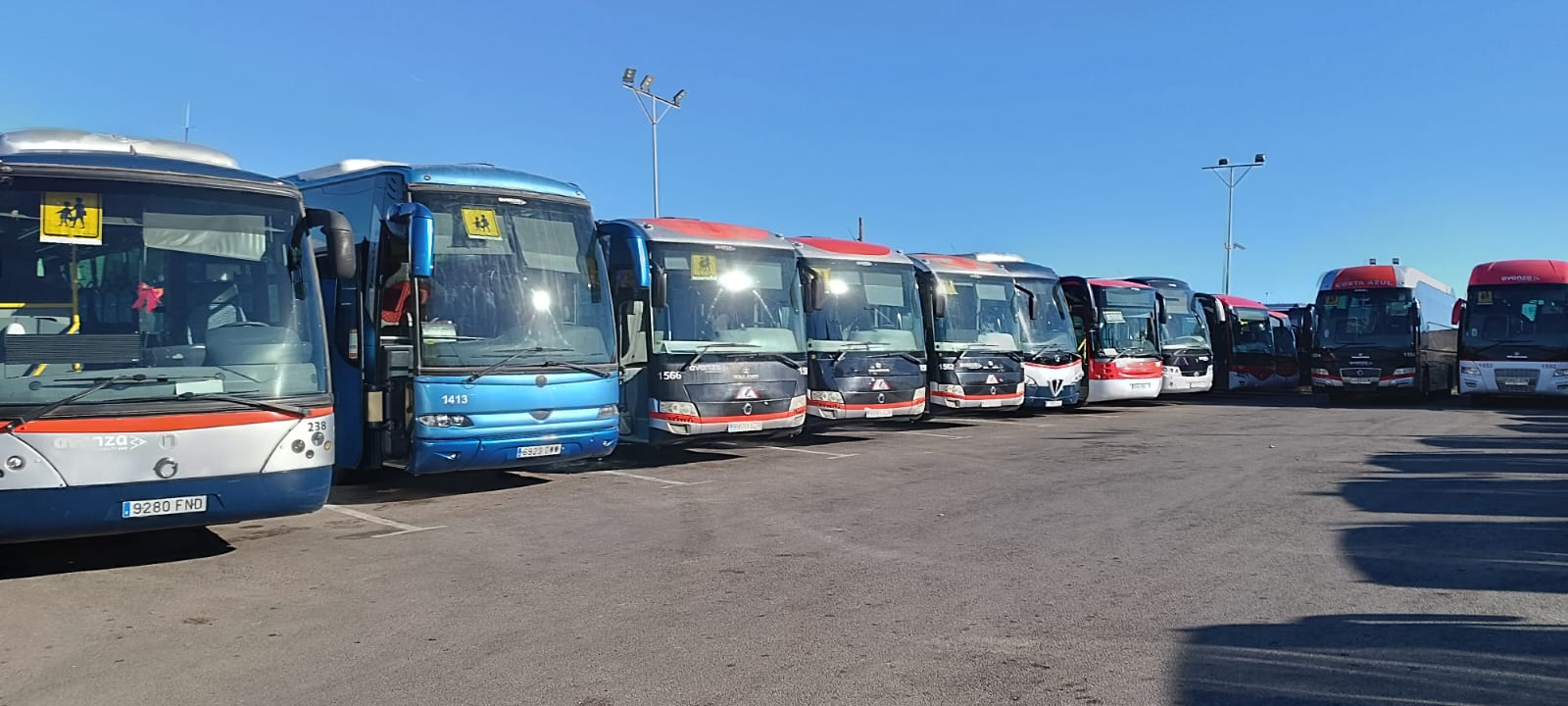
Yesterday, Tuesday May 6th, the Torrevieja government authorised the tender for a new urban transport service contract, which is a 10-year concession for a total of €115,440,005 (plus VAT). Since 2012, the service has been rendered without a contract, and audit reports have been virtually automatic as a result of administrative irregularities in the payment of invoices, which amount to approximately €260,000 per month.
In fact, it has been a commitment of Eduardo Dolón’s since he regained the mayoralty in 2019, but it has not been implemented in six years. These contracts, in addition to two other significant contracts, are currently in progress, including waste collection and street cleansing, as well as park and garden maintenance.
The mayor stated that “a significant stride has been taken in the finals of the major services that remained to be awarded.” This project will entail the modernisation of a service that was previously provided under conditions that did not meet our expectations. We are now proposing a modernised service that will significantly increase the parameters of frequency, punctuality, quality, and user comfort, as well as the digitalisation of the service. Additionally, we are committed to reducing emissions and demonstrating our dedication to the environment.
The deadline for proposals is mid-June, and the bid evaluation period will commence in July, unless appeals are submitted. The bid submission period will be 40 calendar days from the tender announcement. As a result, the mayor expects to award the service this year and start providing it by the end of the year.
Increased fleet and workforce
Antonio Vidal, the Councillor for Transport, clarified that the new service results in an increase in the number of employees. Specifically, the government’s dedication to sustainable mobility through low-emission vehicles, with reduced fossil fuel consumption and a substantial reduction in pollution levels, is evidenced by the fact that the number of buses has doubled, from 16 to 32 units (26 hybrids and 6 electric). A driver assistance system will be installed on all buses to enable the concessionaire and users to access real-time information about incidents, service schedules, and routes.
The number of employees has more than doubled, with an estimated workforce of over one hundred professionals, rather than the current 41.
Three nocturnal lines and nine daytime lines
The total number of lines has been increased to nine, with the addition of six new lines: the circular line, the hospital line, the Torreblanca-La Mata-Quirón Hospital line, and three night lines. These lines will provide coverage for high schools, health centres, weekly markets, and cemeteries in both Torrevieja and La Mata, as well as the northern and residential areas.
In addition, the hours will be extended to 7 a.m. to 10:30 p.m. during the low season and 7 a.m. to midnight during the peak season. Night services will be available on Saturdays during the low season, Fridays and Saturdays during the mid-season (June and September), and daily during the peak season.
Fees
Until recently, the standard ticket was free for registered residents who requested it, but it now costs €1.50. The incorporation of the CPI has resulted in a 10% increase in comparison to the City Council’s initial fare calculations for 2021. This is a noteworthy point.
Various ticket categories will be available. The Gold Pass provides unlimited free travel on urban transport throughout the year for individuals over the age of 65, pensioners, or those with a disability that exceeds 33%. In both cases, the prerequisite is that the individual has been a registered resident of the city for a significant period of time.
The special multi-trip bus pass is available at nearly 50% discount for young individuals under 26, large families, and the long-term unemployed (more than two years).
The 30-pass is a fare that is applicable for all users and provides unlimited rides on all lines of urban transport for a period of 30 days. It is priced at 44 euros.
The tourist card is a fare that entitles tourists and travellers to unlimited use of urban transport lines for the specified duration: three days for a fee of 10 euros, and seven days for a fee of 18 euros.
The multi-trip bus pass is a reloadable card that is priced at 11 euros for 10 journeys or 22 euros for 20.
All passes include free transfers for a 60-minute period.
To achieve this objective, the City Council will allocate 8 million euros annually.
The councillor declared, “A fare system that is fair, affordable, and tailored to the service to be rendered.”
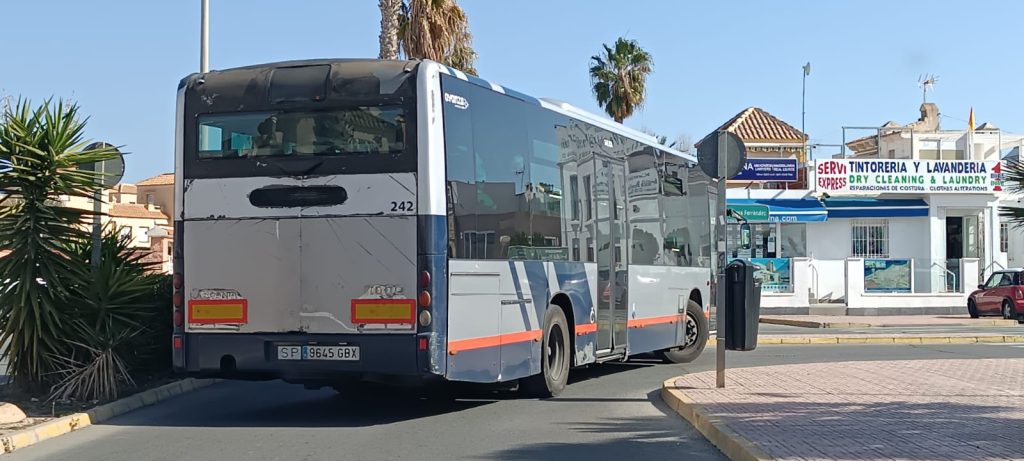
The successful bidder is required to supply 26 hybrid buses and six electric buses. The successful bidder is obligated to provide all 32 vehicles within a 12-month timeframe, with the initial deliveries occurring four months after the contract enters into force.
The City Council has previously awarded these vehicles through a tender process. The successful bidder is required to deposit €19,820,532 upon the signing of the contract in order for the City Council to proceed with the payment of the vehicle purchase price. This is one of the new features included in this document. In this manner, the City Council can ensure that the vehicles are supplied and the service is initiated simultaneously.
They plan to construct, improve, and maintain each of the 180 urban transport service locations. We will also enhance the shelters at these stops and construct new ones.
Similarly, the service will be digitalised, with an operations support system that will optimise routes, identify potential issues, and provide real-time information to users via a mobile app and at locations.
Furthermore, three offices will be open to offer information and services to all consumers. They will be situated in the town centre, the La Mata district, and the primary offices of the contracting company. The hours of operation will be from 10 a.m. to 2 p.m. and from 4 p.m. to 8 p.m., Monday through Saturday.
The new contract encompasses the draughtsmanship of the project and the completion of the requisite works to establish an operational base (€3.1 million) for depots, workshops, and control centre offices, as well as the charging station for 12 electric buses (€963,243).
It will be situated on a 7,550-square-metre site at the intersection of Rosa Mazón Valero Avenue and Juan Valera Street in Enclave 13, specifically on a municipal allotment. After the concession period concludes, the City Council will assume ownership of the entire vehicle fleet and associated digital equipment.
Discover more from Costa Blanca Daily
Subscribe to get the latest posts sent to your email.
-
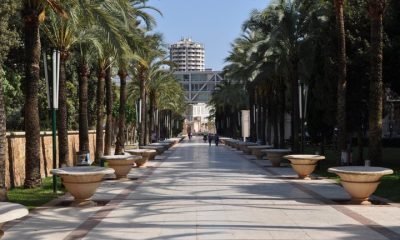
 Costa Blanca2 weeks ago
Costa Blanca2 weeks agoBenidorm studies the temperature of its streets to understand “heat island effect”
-
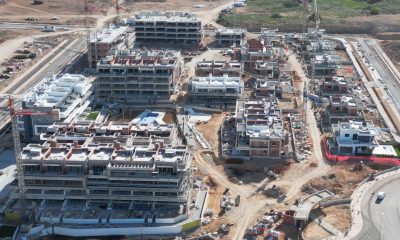
 Costa Blanca2 weeks ago
Costa Blanca2 weeks ago44% of homes in Alicante province were purchased by foreigners
-
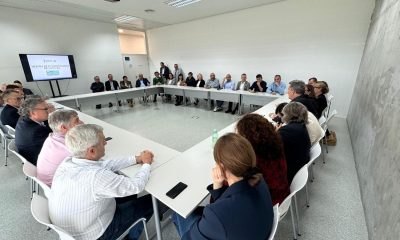
 News2 weeks ago
News2 weeks agoThe Generalitat presents the road map for the widening of the CV-95 between Orihuela and Torrevieja
-
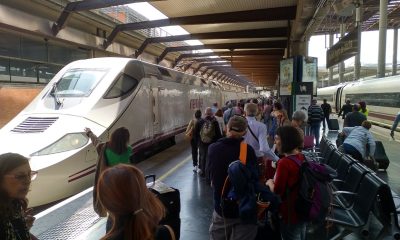
 Costa Blanca2 weeks ago
Costa Blanca2 weeks agoCompetition on Spain’s railways is driving down prices
-

 Costa Blanca2 weeks ago
Costa Blanca2 weeks agoCouple arrested for a marijuana plantation with 481 plants hidden in their home
-
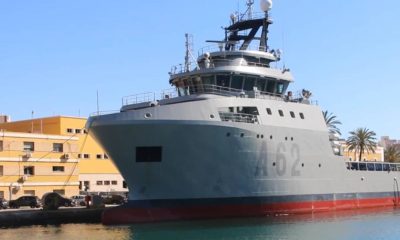
 Costa Blanca2 weeks ago
Costa Blanca2 weeks ago‘Cartagena’, the new electric Navy ship
-
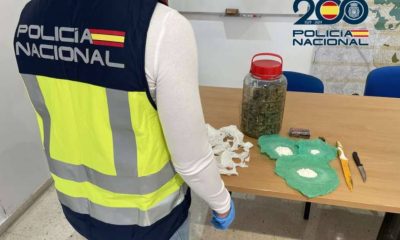
 Costa Blanca2 weeks ago
Costa Blanca2 weeks agoFour minors arrested for smuggling drugs on a school trip
-

 Costa Blanca2 weeks ago
Costa Blanca2 weeks agoAlicante port gets an electric boat for cleaning the water surface







